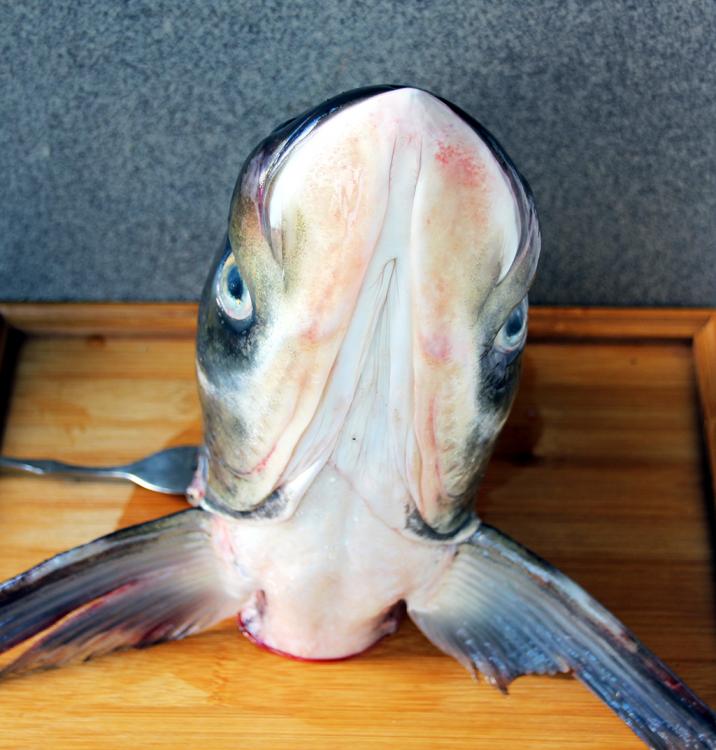15. The Chinese Eat Live Fish
The internet is full of horror stories; YouTube has videos; PETA are up in hysterical arms! People in China are eating live fish! You can see the fish gasping for breath; you can see its eyes move. It's YinYang Fish - 阴阳鱼 (yīn yáng yú), sometimes called 'dead and alive fish'!
Except, it's all nonsense. The fish ain't still alive!
This is a dish of deep fried whole carp which is served with a sweet and sour sauce. Diners are either horrified or amused to see that the fish's mouth is still opening and closing and its eyes may move, too. They assume it must be alive!
Tell me how a fish that has been totally eviscerated and had chopsticks driven through its brain*, then deep fried, can possibly still be alive. What these diners are seeing is post-mortem muscular spasms - not signs of life!
Alternative names for the dish are 糖醋活鱼 (táng cù huó yú) and 呼叫鱼 (hū jiào yú). The first can translate as 'sweet and sour live fish' but 活 (huó) also means 'moving'. Sweet and sour moving fish!' The second name means 'calling out fish' meaning it looks as though it's shouting for assistance - if it is, it is way too late!
People see what they want to see! For the Chinese diners, it is vaguely amusing; for the more gullible foreigners, it is torture!
Also, people often visit markets and see large fish heads sitting up on vendors' stalls opening and closing their mouths, then assume the decapitated heads are somehow still alive. Again, what they are seeing are post-mortem muscle spasms. These heads are from a type of carp known as Big Head Carp (Hypophthalmichthys nobilis) - 大头鲢 dà tóu lián. These are used to make fishhead and tofu soup - 鱼头豆腐汤 (yú tóu dòu fu tāng) - a delicious and popular dish.
Big Head Carp
The only dish I've ever been served (half) alive was drunken shrimp 醉虾 (zuì xiā) and that only once**. The Chinese have a strong aversion to eating anything raw - never mind still alive!
* A standard method of killing fish in China - death is instant.
** I had previously eaten this in Japan as Odori ebi - 踊り海老.



